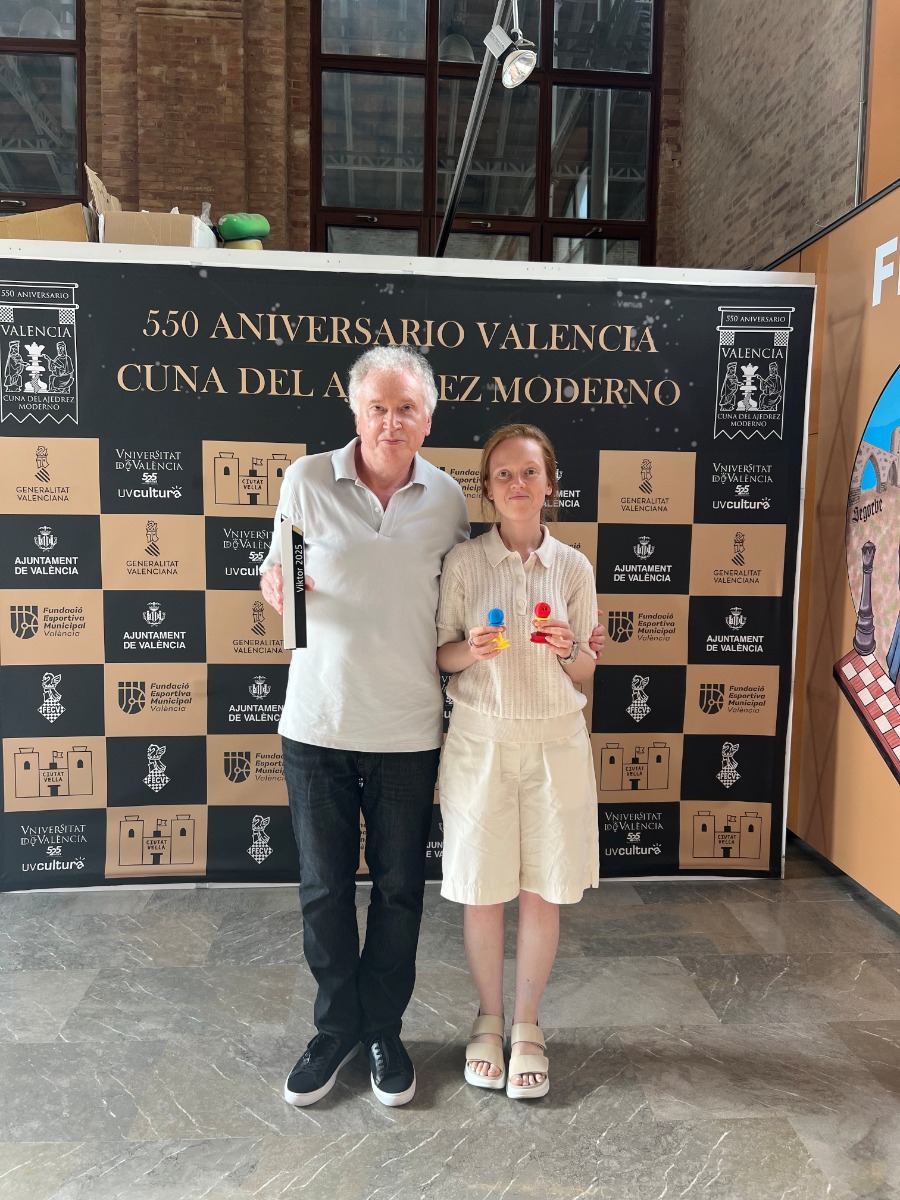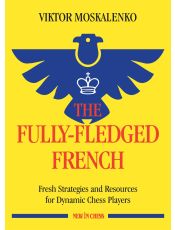Viktor, Viktor and… Viktor!
One of our favourite authors, Viktor Moskalenko, was awarded a prestigious prize on 6 September this year… the Viktor prize! This prize, offered by the Emanuel Lasker Gesellschaft e.V., was not named after ‘Moska’ himself, but after his legendary namesake Viktor Korchnoi. It is presented to people who have made a special contribution to the promotion of chess as a sport. There is also a ‘female’ version of this prize, called Vera (after Vera Menchik). Last year, the ‘Viktor’ had gone to the long-standing editor of the German magazine Schach, Raj Tischbierek, while the ‘Vera’ had gone to Judit Polgar. Another prize, the ‘Lasker’, went to Magnus Carlsen in 2024.
The prize ceremony was held during the General Assembly of the Chess History & Literature Society, which took place in Valencia on September 5 and 6. Lasker Association board member Rebekka Schuster, who called herself one of Moskalenko’s biggest fans, gave him the prize. In her speech, she said: ‘I have played chess on a moderate level for forty years, but only when a friend gave me your book The Fully-Fledged French did I really take the time to study an opening.’ She quoted the name-giver of the prize, Viktor Korchnoi, who wrote in his Foreword to one of Moska’s other successful books, The Wonderful Winawer (New In Chess 2010), that ‘Viktor writes with soul’. ‘I could not agree more,’ said Schuster. ‘Your books are not dry theory but offer many stories and ideas. They are very inspiring, also for people like me who don’t have a strong connection with opening theory.’ She said a few of her friends had reacted with excitement when she told them she was going to meet Moskalenko: ‘Whenever they play the French, they always think of you! Thank you for the inspiration you bring to young, and also not so young, chess players.’
In his acceptance speech, Moskalenko said he was very grateful for this recognition of his writing work. He was especially honoured because the prize was named after his idol, Korchnoi, one of his great inspirations. They had become friends later in their lives, ‘especially because I never beat him,’ Moska added to the laughter of the audience. ‘After publishing The Flexible French (New in Chess 2008), Korchnoi called me and congratulated me. He said that even the greatest French experts, like Lev Psakhis, had liked the book. But then he asked with characteristic mockery: ''Viktor, why did you collect so many good ideas and innovations in one book? Why didn’t you save them for your own games?’’ My answer made him laugh: “Hardly anyone plays 1.e4 against me these days! My opponents always change their repertoire before their game with me.”’ With his usual contagious enthusiasm, Moskalenko concluded: ‘The chess world is great. You can play until your final day, like Korchnoi did. You can also write books or organize events – all kinds of things. Today I am very happy.’
 Viktor Moskalenko with his daughter Mila, who accompanied him to Valencia.
Viktor Moskalenko with his daughter Mila, who accompanied him to Valencia.
Afterwards, Viktor told us: ‘I was pleasantly surprised to receive this news. Getting this award after Judit Polgar and Magnus Carlsen is a great honour for me. I am very grateful to the Emanuel Lasker Gesellschaft!’ And: ‘This recognition is to me like a spiritual message of support from Viktor Korchnoi.’ The dinner after the award ceremony took place in a restaurant where the waiter turned out to be a chess player. He even remembered Moskalenko from a tournament in Valencia two years ago. That does sound like the end of a perfect day.

